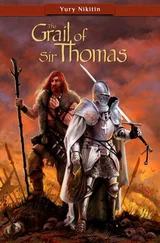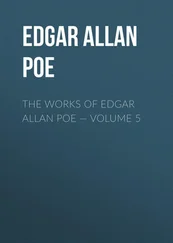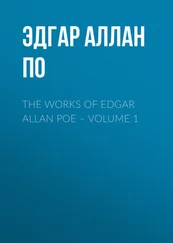Thomas Browne - The Works of Sir Thomas Browne, Volume 3
Здесь есть возможность читать онлайн «Thomas Browne - The Works of Sir Thomas Browne, Volume 3» — ознакомительный отрывок электронной книги совершенно бесплатно, а после прочтения отрывка купить полную версию. В некоторых случаях можно слушать аудио, скачать через торрент в формате fb2 и присутствует краткое содержание. ISBN: , Жанр: foreign_antique, foreign_prose, на английском языке. Описание произведения, (предисловие) а так же отзывы посетителей доступны на портале библиотеки ЛибКат.
- Название:The Works of Sir Thomas Browne, Volume 3
- Автор:
- Жанр:
- Год:неизвестен
- ISBN:http://www.gutenberg.org/ebooks/39962
- Рейтинг книги:4 / 5. Голосов: 1
-
Избранное:Добавить в избранное
- Отзывы:
-
Ваша оценка:
- 80
- 1
- 2
- 3
- 4
- 5
The Works of Sir Thomas Browne, Volume 3: краткое содержание, описание и аннотация
Предлагаем к чтению аннотацию, описание, краткое содержание или предисловие (зависит от того, что написал сам автор книги «The Works of Sir Thomas Browne, Volume 3»). Если вы не нашли необходимую информацию о книге — напишите в комментариях, мы постараемся отыскать её.
The Works of Sir Thomas Browne, Volume 3 — читать онлайн ознакомительный отрывок
Ниже представлен текст книги, разбитый по страницам. Система сохранения места последней прочитанной страницы, позволяет с удобством читать онлайн бесплатно книгу «The Works of Sir Thomas Browne, Volume 3», без необходимости каждый раз заново искать на чём Вы остановились. Поставьте закладку, и сможете в любой момент перейти на страницу, на которой закончили чтение.
Интервал:
Закладка:
The certainty of death is attended with uncertainties, in time, manner, places. The variety of Monuments hath often obscured true graves: and Cenotaphs confounded Sepulchres. For beside their real Tombs, many have found honorary and empty Sepulchres. The variety of Homers Monuments made him of various Countreys. Euripides 58had his Tomb in Africa , but his sepulture in Macedonia . And Severus 59found his real Sepulchre in Rome , but his empty grave in Gallia .
He that lay in a golden Urne 60eminently above the earth, was not like to finde the quiet of these bones. Many of these Urnes were broke by a vulgar discoverer in hope of inclosed treasure. The ashes of Marcellus 61were lost above ground, upon the like account. Where profit hath prompted, no age hath wanted such miners. The Commission of the Gothish King Theodoric for finding out sepulchrall treasure. Cassiodor. Var. l. 4.For which the most barbarous Expilators found the most civil Rhetorick. Gold once out of the earth is no more due unto it; What was unreasonably committed to the ground is reasonably resumed from it: Let Monuments and rich Fabricks, not Riches adorn mens ashes. The commerce of the living is not to be transferred unto the dead: It is no injustice to take that which none complaines to lose, and no man is wronged where no man is possessor.
What virtue yet sleeps in this terra damnata and aged cinders, were petty magick to experiment; These crumbling reliques and long-fired particles superannate such expectations: Bones, hairs, nails, and teeth of the dead, were the treasures of old Sorcerers. In vain we revive such practices; Present superstition too visibly perpetuates the folly of our fore-fathers, wherein unto old Observation this Island was so compleat, that it might have instructed Persia . 62
Plato’s historian of the other world, lies twelve dayes incorrupted, while his soul was viewing the large stations of the dead. How to keep the corps seven dayes from corruption by anointing and washing, without exenteration, were an hazardable peece of art, in our choisest practise. How they made distinct separation of bones and ashes from fiery admixture, hath found no historical solution. Though they seemed to make a distinct collection, and overlooked not Pyrrhus his toe. Some provision they might make by fictile Vessels, Coverings, Tiles, or flat stones, upon and about the body. And in the same Field, not far from these Urnes, many stones were found under ground, as also by careful separation of extraneous matter, composing and raking up the burnt bones with forks, observable in that notable lamp of Galuanus . Martianus , 63who had the sight of the Vas Ustrinum , or vessel wherein they burnt the dead, found in the Esquiline Field at Rome , might have afforded clearer solution. But their insatisfaction herein begat that remarkable invention in the Funeral Pyres of some Princes, by incombustible sheets made with a texture of Asbestos , incremable flax, or Salamanders wool, which preserved their bones and ashes 64incommixed.
How the bulk of a man should sink into so few pounds of bones and ashes, may seem strange unto any who considers not its constitution, and how slender a mass will remain upon an open and urging fire of the carnal composition. Even bones themselves reduced into ashes, do abate a notable proportion. And consisting much of a volatile salt, when that is fired out, make a light kind of cinders. Although their bulk be disproportionable to their weight, when the heavy principle of Salt is fired out, and the Earth almost onely remaineth; Observable in sallow, which makes more Ashes then Oake; and discovers the common fraud of selling Ashes by measure, and not by ponderation.
Some bones make best Skeletons, 65some bodies quick and speediest ashes: Who would expect a quick flame from Hydropical Heraclitus ? The poisoned Souldier when his Belly brake, put out two pyres in Plutarch . 66But in the plague of Athens , 67one private pyre served two or three Intruders; and the Saracens burnt in large heaps, by the King of Castile , 68shewed how little Fuel sufficeth. Though the Funeral pyre of Patroclus took up an hundred foot, 69a peece of an old boat burnt Pompey ; And if the burthen of Isaac were sufficient for an holocaust, a man may carry his own pyre.
From animals are drawn good burning lights, and good medicines 70against burning; Though the seminal humor seems of a contrary nature to fire, yet the body compleated proves a combustible lump, wherein fire findes flame even from bones, and some fuel almost from all parts. Though the Metropolis 71of humidity seems least disposed unto it, which might render the sculls of these Urnes less burned then other bones. But all flies or sinks before fire almost in all bodies. When the common ligament is dissolved, the attenuable parts ascend, the rest subside in coal, calx or ashes.
To burn the bones of the King of Edom 72for Lyme, seems no irrational ferity; But to drink of the ashes of dead relations, 73a passionate prodigality. He that hath the ashes of his friend, hath an everlasting treasure: where fire taketh leave, corruption slowly enters; In bones well burnt, fire makes a wall against it self, experimented in copels, and tests of metals, which consist of such ingredients. What the Sun compoundeth, fire analyseth, not transmuteth. That devouring agent leaves almost alwayes a morsel for the Earth, whereof all things are but a colony; and which, if time permits, the mother Element will have in their primitive mass again.
He that looks for Urnes and old sepulchral reliques, must not seek them in the ruines of Temples: where no Religion anciently placed them. These were found in a Field, according to ancient custome, in noble or private burial; the old practise of the Canaanites , the Family of Abraham , and the burying place of Josua , in the borders of his possessions; and also agreeable unto Romane practise to bury by highwayes, whereby their Monuments were under eye: Memorials of themselves, and memento’s of mortality into living passengers; whom the Epitaphs of great ones were fain to beg to stay and look upon them. A language though sometimes used, not so proper in Church-Inscriptions. 74The sensible Rhetorick of the dead, to exemplarity of good life, first admitted the bones of pious men, and Martyrs within Church-wals; which in succeeding ages crept into promiscuous practise. While Constantine was peculiarly favoured to be admitted unto the Church Porch; and the first thus buried in England was in the dayes of Cuthred .
Christians dispute how their bodies should lye in the grave. 75In urnal enterrment they clearly escaped this Controversie: Though we decline the Religious consideration, yet in cemiterial and narrower burying places, to avoid confusion and crosse position, a certain posture were to be admitted; which even Pagan civility observed, The Persians lay North and South, The Megarians and Phœnicians placed their heads to the East: The Athenians , some think, towards the West, which Christians still retain. And Beda will have it to be the posture of our Saviour. That he was crucified with his face towards the West, we will not contend with tradition and probable account; But we applaud not the hand of the Painter, in exalting his Cross so high above those on either side; since hereof we finde no authentick account in history, and even the crosses found by Helena pretend no such distinction from longitude or dimension.
To be gnawd out of our graves, to have our sculs made drinking-bowls, and our bones turned into Pipes, to delight and sport our Enemies, are Tragical abominations, escaped in burning Burials.
Читать дальшеИнтервал:
Закладка:
Похожие книги на «The Works of Sir Thomas Browne, Volume 3»
Представляем Вашему вниманию похожие книги на «The Works of Sir Thomas Browne, Volume 3» списком для выбора. Мы отобрали схожую по названию и смыслу литературу в надежде предоставить читателям больше вариантов отыскать новые, интересные, ещё непрочитанные произведения.
Обсуждение, отзывы о книге «The Works of Sir Thomas Browne, Volume 3» и просто собственные мнения читателей. Оставьте ваши комментарии, напишите, что Вы думаете о произведении, его смысле или главных героях. Укажите что конкретно понравилось, а что нет, и почему Вы так считаете.












